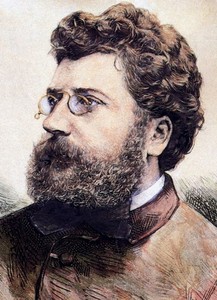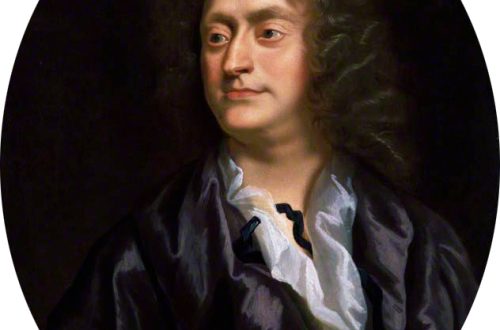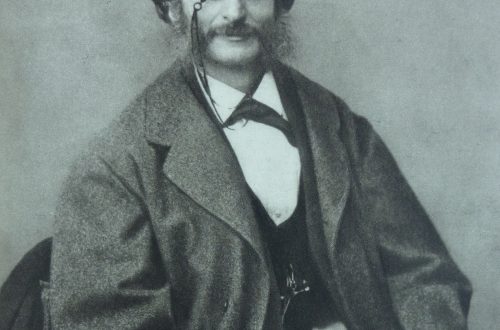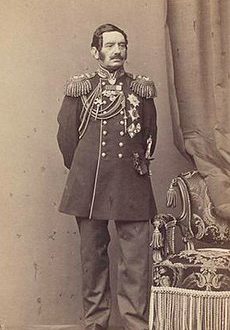
Georges Bizet |
Contents
Georges Bizet
… I need a theater: without it I am nothing. J. Bizet

The French composer J. Bizet devoted his short life to musical theater. The pinnacle of his work – “Carmen” – is still one of the most beloved operas for many, many people.
Bizet grew up in a culturally educated family; father was a singing teacher, mother played the piano. From the age of 4, Georges began to study music under the guidance of his mother. At the age of 10 he entered the Paris Conservatoire. The most prominent musicians of France became his teachers: pianist A. Marmontel, theorist P. Zimmerman, opera composers F. Halévy and Ch. Gounod. Even then, Bizet’s versatile talent was revealed: he was a brilliant virtuoso pianist (F. Liszt himself admired his playing), repeatedly received prizes in theoretical disciplines, was fond of playing the organ (later, already gaining fame, he studied with S. Frank).
In the Conservatory years (1848-58), works appear full of youthful freshness and ease, among which are the Symphony in C major, the comic opera The Doctor’s House. The end of the conservatory was marked by the receipt of the Rome Prize for the cantata “Clovis and Clotilde”, which gave the right to a four-year stay in Italy and a state scholarship. At the same time, for the competition announced by J. Offenbach, Bizet wrote the operetta Doctor Miracle, which was also awarded a prize.
In Italy, Bizet, fascinated by the fertile southern nature, monuments of architecture and painting, worked a lot and fruitfully (1858-60). He studies art, reads many books, comprehends beauty in all its manifestations. The ideal for Bizet is the beautiful, harmonious world of Mozart and Raphael. Truly French grace, generous melodic gift, and delicate taste have forever become integral features of the composer’s style. Bizet is increasingly attracted to operatic music, capable of “merging” with the phenomenon or hero depicted on stage. Instead of the cantata, which the composer was supposed to present in Paris, he writes the comic opera Don Procopio, in the tradition of G. Rossini. An ode-symphony “Vasco da Gama” is also being created.
With the return to Paris, the beginning of serious creative searches and at the same time hard, routine work for the sake of a piece of bread is connected. Bizet has to make transcriptions of other people’s opera scores, write entertaining music for cafe-concerts and at the same time create new works, working 16 hours a day. “I work as a black man, I am exhausted, I literally break into pieces … I just finished romances for the new publisher. I’m afraid that it turned out mediocre, but money is needed. Money, always money – to hell! Following Gounod, Bizet turns to the genre of lyric opera. His “Pearl Seekers” (1863), where the natural expression of feelings is combined with oriental exoticism, was praised by G. Berlioz. The Beauty of Perth (1867, based on a plot by W. Scott) depicts the life of ordinary people. The success of these operas was not so great as to strengthen the position of the author. Self-criticism, a sober awareness of the shortcomings of The Perth Beauty became the key to Bizet’s future achievements: “This is a spectacular play, but the characters are poorly outlined … The school of beaten roulades and lies is dead – dead forever! Let’s bury her without regret, without excitement – and forward! A number of plans of those years remained unfulfilled; the completed, but generally unsuccessful opera Ivan the Terrible was not staged. In addition to operas, Bizet writes orchestral and chamber music: he completes the Rome symphony, begun back in Italy, writes pieces for piano in 4 hands “Children’s Games” (some of them in the orchestral version were “Little Suite”), romances.
In 1870, during the Franco-Prussian War, when France was in a critical situation, Bizet joined the National Guard. A few years later, his patriotic feelings found expression in the dramatic overture “Motherland” (1874). 70s – the flourishing of the composer’s creativity. In 1872, the premiere of the opera “Jamile” (based on the poem by A. Musset) took place, subtly translating; intonations of Arabic folk music. It was a surprise for visitors to the Opera-Comique theater to see a work that tells about selfless love, full of pure lyrics. Genuine connoisseurs of music and serious critics saw in Jamil the beginning of a new stage, the opening of new paths.
In the works of these years, the purity and elegance of style (always inherent in Bizet) by no means prevent a truthful, uncompromising expression of the drama of life, its conflicts and tragic contradictions. Now the idols of the composer are W. Shakespeare, Michelangelo, L. Beethoven. In his article “Conversations on Music”, Bizet welcomes “a passionate, violent, sometimes even unbridled temperament, like Verdi, which gives art a living, powerful work, created from gold, mud, bile and blood. I change my skin both as an artist and as a person, ”says Bizet about himself.
One of the pinnacles of Bizet’s work is the music for A. Daudet’s drama The Arlesian (1872). The staging of the play was unsuccessful, and the composer compiled an orchestral suite from the best numbers (the second suite after Bizet’s death was composed by his friend, composer E. Guiraud). As in previous works, Bizet gives the music a special, specific flavor of the scene. Here it is Provence, and the composer uses folk Provencal melodies, saturates the whole work with the spirit of old French lyrics. The orchestra sounds colorful, light and transparent, Bizet achieves an amazing variety of effects: these are the ringing of bells, the brilliance of colors in the picture of the national holiday (“Farandole”), the refined chamber sound of the flute with harp (in the minuet from the Second Suite) and the sad “singing” of the saxophone (Bizet was the first to introduce this instrument into the symphony orchestra).
Bizet’s last works were the unfinished opera Don Rodrigo (based on Corneille’s drama The Cid) and Carmen, which placed its author among the world’s greatest artists. The premiere of Carmen (1875) was also Bizet’s biggest failure in life: the opera failed with a scandal and caused a sharp press assessment. After 3 months, on June 3, 1875, the composer died on the outskirts of Paris, Bougival.
Despite the fact that Carmen was staged at the Comic Opera, it corresponds to this genre only with some formal features. In essence, this is a musical drama that exposed the real contradictions of life. Bizet used the plot of P. Merimee’s short story, but elevated his images to the value of poetic symbols. And at the same time, they are all “live” people with bright, unique characters. The composer brings folk scenes into action with their elemental manifestation of vitality, overflowing with energy. Gypsy beauty Carmen, bullfighter Escamillo, smugglers are perceived as part of this free element. Creating a “portrait” of the main character, Bizet uses the melodies and rhythms of habanera, seguidilla, polo, etc.; at the same time, he managed to penetrate deeply into the spirit of Spanish music. Jose and his bride Michaela belong to a completely different world – cozy, remote from storms. Their duet is designed in pastel colors, soft romance intonations. But Jose is literally “infected” with Carmen’s passion, her strength and uncompromisingness. The “ordinary” love drama rises to the tragedy of the clash of human characters, the strength of which surpasses the fear of death and defeats it. Bizet sings of the beauty, the greatness of love, the intoxicating feeling of freedom; without preconceived moralizing, he truthfully reveals the light, the joy of life and its tragedy. This again reveals a deep spiritual kinship with the author of Don Juan, the great Mozart.
Already a year after the unsuccessful premiere, Carmen is staged with triumph on the largest stages in Europe. For the production at the Grand Opera in Paris, E. Guiraud replaced conversational dialogues with recitatives, introduced a number of dances (from other works by Bizet) into the last action. In this edition, the opera is known to today’s listener. In 1878, P. Tchaikovsky wrote that “Carmen is in the fullest sense a masterpiece, that is, one of those few things that are destined to reflect the musical aspirations of an entire era to the strongest degree … I am convinced that in ten years ” Carmen” will be the most popular opera in the world…”
K. Zenkin
The best progressive traditions of French culture found expression in Bizet’s work. This is the high point of realistic aspirations in French music of the XNUMXth century. In the works of Bizet, those features that Romain Rolland defined as typical national features of one of the sides of the French genius were vividly captured: “… heroic efficiency, intoxication with reason, laughter, passion for light.” Such, according to the writer, is “the France of Rabelais, Molière and Diderot, and in music … the France of Berlioz and Bizet.”
Bizet’s short life was filled with vigorous, intense creative work. It didn’t take long for him to find himself. But extraordinary personality The artist’s personality manifested itself in everything he did, although at first his ideological and artistic searches still lacked purposefulness. Over the years, Bizet became more and more interested in the life of the people. A bold appeal to the plots of everyday life helped him create images that were precisely snatched from the surrounding reality, enrich contemporary art with new themes and extremely truthful, powerful means in depicting healthy, full-blooded feelings in all their diversity.
The public upsurge at the turn of the 60s and 70s led to an ideological turning point in Bizet’s work, directed him to the heights of mastery. “Content, content first!” he exclaimed in one of his letters during those years. He is attracted in art by the scope of thought, the breadth of the concept, the truthfulness of life. In his only article, published in 1867, Bizet wrote: “I hate pedantry and false erudition… Hookwork instead of creating. There are fewer and fewer composers, but parties and sects are multiplying ad infinitum. Art is impoverished to complete poverty, but technology is enriched by verbosity… Let’s be direct, truthful: let’s not demand from a great artist those feelings that he lacks, and use those that he possesses. When a passionate, exuberant, even rough temperament, like Verdi, gives art a lively and strong work, fashioned from gold, mud, bile and blood, we do not dare to say to him coldly: “But, sir, this is not exquisite.” “Exquisite? .. Is it Michelangelo, Homer, Dante, Shakespeare, Cervantes, Rabelais exquisite? .. “.
This breadth of views, but at the same time adherence to principles, allowed Bizet to love and respect a lot in the art of music. Along with Verdi, Mozart, Rossini, Schumann should be named among the composers appreciated by Bizet. He knew far from all of Wagner’s operas (the works of the post-Lohengrin period were not yet known in France), but he admired his genius. “The charm of his music is incredible, incomprehensible. This is voluptuousness, pleasure, tenderness, love! .. This is not the music of the future, because such words do not mean anything – but this is … music of all times, since it is beautiful ”(from a letter of 1871). With a feeling of deep respect, Bizet treated Berlioz, but he loved Gounod more and spoke with cordial benevolence about the successes of his contemporaries – Saint-Saens, Massenet and others.
But above all, he put Beethoven, whom he idolized, calling the titan, Prometheus; “… in his music,” he said, “the will is always strong.” It was the will to live, to action that Bizet sang in his works, demanding that feelings be expressed by “strong means.” An enemy of vagueness, pretentiousness in art, he wrote: “the beautiful is the unity of content and form.” “There is no style without form,” Bizet said. From his students, he demanded that everything be “strongly done.” “Try to keep your style more melodic, modulations more defined and distinct.” “Be musical,” he added, “write beautiful music first of all.” Such beauty and distinctness, impulse, energy, strength and clarity of expression are inherent in Bizet’s creations.
His main creative achievements are connected with the theater, for which he wrote five works (in addition, a number of works were not completed or, for one reason or another, were not staged). The attraction to theatrical and stage expressiveness, which is generally characteristic of French music, is very characteristic of Bizet. Once he told Saint-Saens: “I was not born for the symphony, I need the theater: without it I am nothing.” Bizet was right: it was not instrumental compositions that brought him world fame, although their artistic merits are undeniable, but his latest works are the music for the drama “Arlesian” and the opera “Carmen”. In these works, the genius of Bizet was fully revealed, his wise, clear and truthful skill in showing the great drama of people from the people, colorful pictures of life, its light and shadow sides. But the main thing is that he immortalized with his music an inexorable will to happiness, an effective attitude to life.
Saint-Saens described Bizet with the words: “He is all – youth, strength, joy, good spirits.” This is how he appears in music, striking with sunny optimism in showing life’s contradictions. These qualities give his creations a special value: a brave artist who burned out in overwork before reaching the age of thirty-seven, Bizet stands out among the composers of the second half of the XNUMXth century with his inexhaustible cheerfulness, and his latest creations – primarily the opera Carmen – belong to the best, what world music literature is famous for.
M. Druskin
Compositions:
Works for the theater «Doctor Miracle», operetta, libretto Battue and Galevi (1857) Don Procopio, comic opera, libretto by Cambiaggio (1858-1859, not performed during the composer’s lifetime) The Pearl Seekers, opera, libretto by Carré and Cormon (1863) Ivan the Terrible, opera, libretto by Leroy and Trianon (1866, not performed during the composer’s lifetime) Belle of Perth, opera, libretto by Saint-Georges and Adeni (1867) “Jamile”, opera, libretto by Galle (1872) “Arlesian”, music for the drama by Daudet (1872; First suite for orchestra – 1872; Second composed by Guiraud after Bizet’s death) “Carmen”, opera, libretto Meliaca and Galevi (1875)
Symphonic and vocal-symphonic works Symphony in C-dur (1855, not performed during the composer’s lifetime) “Vasco da Gama”, symphony-cantata to the text of Delartra (1859—1860) “Rome”, symphony (1871; original version – “Memories of Rome”, 1866-1868) “Little Orchestral Suite” (1871) “Motherland”, dramatic overture (1874)
Piano works Grand concert waltz, nocturne (1854) “Song of the Rhine”, 6 pieces (1865) “Fantastic Hunt”, capriccio (1865) 3 musical sketches (1866) “Chromatic Variations” (1868) “Pianist-singer”, 150 easy piano transcriptions of vocal music (1866-1868) For piano four hands “Children’s Games”, a suite of 12 pieces (1871; 5 of these pieces were included in the “Little Orchestral Suite”) A number of transcriptions of works by other authors
Songs “Album Leaves”, 6 songs (1866) 6 Spanish (Pyrenean) songs (1867) 20 canto, compendium (1868)





